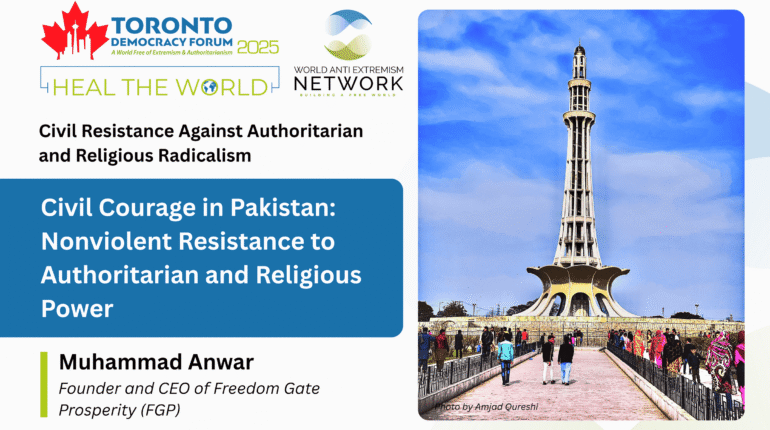
Since its independence in 1947, Pakistan has cycled through multiple periods of military rule and waves of religious radicalism that have repeatedly constrained democratic development and civic freedoms. In this piece, the author Muhammad Anwar, Chief Executive Officer of Freedom Gate Prosperity, examined how ordinary citizens like lawyers, students, women, artists, and grassroots activists have deployed nonviolent strategies to reclaim political space and cultural agency. He also highlighted three interlinked dimensions of Pakistan’s civil resistance. This excerpt argues that authoritarianism and extremism flourish where fear goes unchallenged, while solidarity, civic action, and cultural expression open pathways to democratic renewal.
The findings of this paper offer practical lessons for activists, policymakers, and scholars, acting as a concrete and concise guide that those working on democratic renewal will find quite useful.
About the author

Muhammad Anwar is the Founder and Chief Executive Officer of Freedom Gate Prosperity (FGP), a national non-profit organization based in Islamabad, Pakistan. He holds a Master’s Degree in Political Science and has over three decades of experience in civil society leadership, democracy promotion, and policy advocacy. Well-acquainted with Pakistan’s socio-political landscape, he regularly appears as a panelist on national television channels to comment on governance, civic engagement, and development issues.

